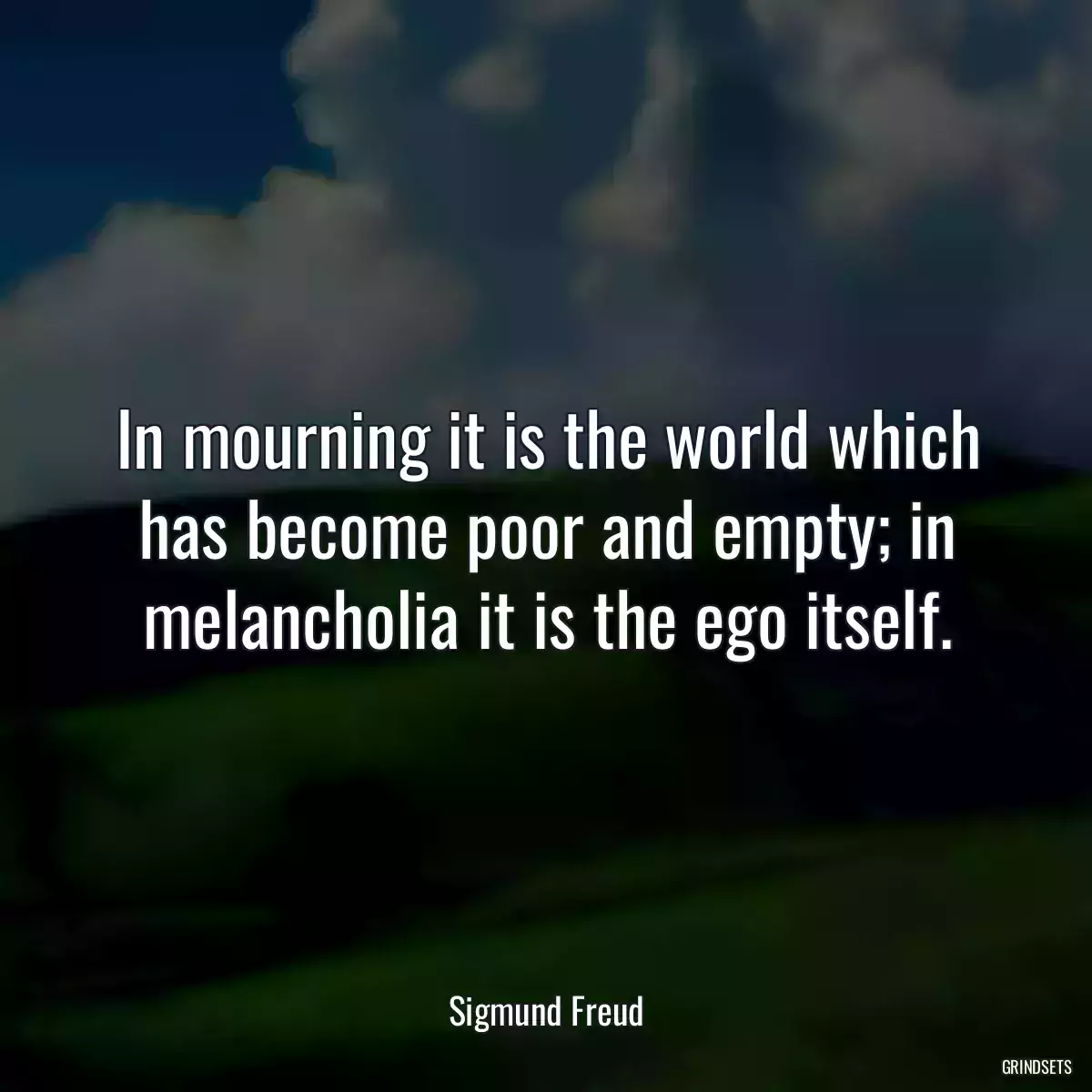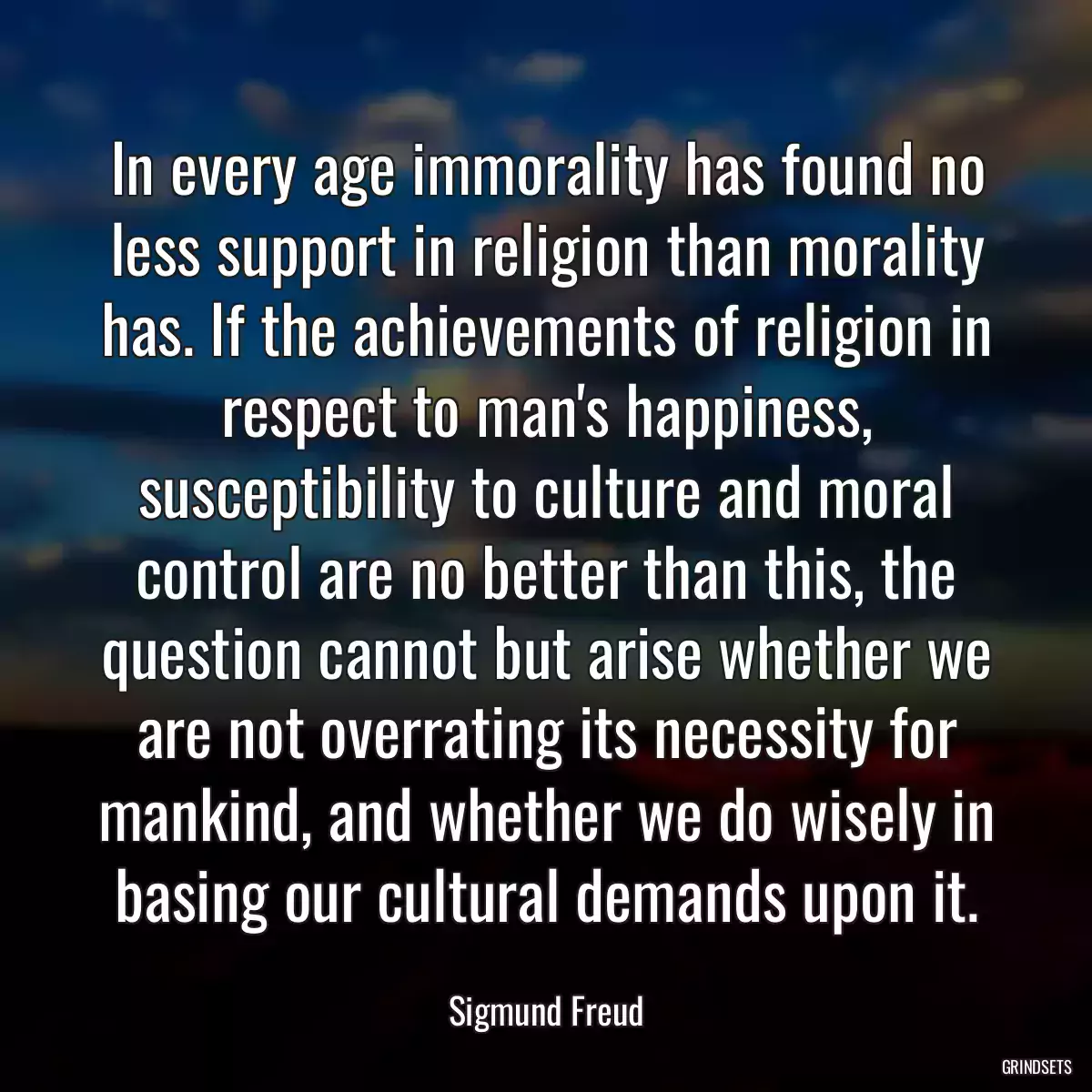
Quotes Sigmund Freud - page 3
Find dozens of Sigmund Freud with images to copy and share.

It is unreasonable to expect science to produce a system of ethics-ethics are a kind of highway code for traffic among mankind-and the fact that in physics atoms which were yesterday assumed to be square are now assumed to be round is exploited with unjustified tendentiousness by all who are hungry for faith; so long as physics extends our dominion over nature, these changes ought to be a matter of complete indifference to you.
No, our science is no illusion. But an illusion it would be to suppose that what science cannot give us we can get elsewhere.
The reproaches against science for not having yet solved the problems of the universe are exaggerated in an unjust and malicious manner; it has truly not had time enough yet for these great achievements. Science is very young--a human activity which developed late.
You may also like
One becomes gradually accustomed to a new realization of the nature of 'happiness': one has to assume happiness when Fate does not carry out all its threats simultaneously.
It is no wonder if, under the pressure of these possibilities of suffering, men are accustomed to moderate their claims to happiness - just as the pleasure principle itself, indeed, under the influence of the external world, changed into the more modest reality principle -, if a man thinks himself happy merely to have escaped unhappiness or to have survived his suffering, and if in general the task of avoiding suffering pushes that of obtaining pleasure into the background.
The game replaces sexual enjoyment by pleasure in movement.
One might compare the relation of the ego to the id with that between a rider and his horse. The horse provides the locomotor energy, and the rider has the prerogative of determining the goal and of guiding the movements of his powerful mount towards it. But all too often in the relations between the ego and the id we find a picture of the less ideal situation in which the rider is obliged to guide his horse in the direction in which it itself wants to go.
Religious ideas have sprung from the same need as all the other achievements of culture: from the necessity for defending itself against the crushing supremacy of nature.

In every age immorality has found no less support in religion than morality has. If the achievements of religion in respect to man's happiness, susceptibility to culture and moral control are no better than this, the question cannot but arise whether we are not overrating its necessity for mankind, and whether we do wisely in basing our cultural demands upon it.
The division of the psychical into what is conscious and what is unconscious is the fundamental premise of psycho-analysis; and it alone makes it possible for psycho-analysis to understand the pathological processes in mental life, which are as common as they are important, and to find a place for them in the framework of science.
The defense against childish helplessness is what lends its characteristic features to the adult's reaction to the helplessness which he has to acknowledge - a reaction which is precisely the formation of religion.
The ego represents what we call reason and sanity, in contrast to the id which contains the passions.
This is one race of people for whom psychoanalysis is of no use whatsoever.
Religion restricts the play of choice and adaptation, since it imposes equally on everyone its own path to the acquisition of happiness and protection from suffering. Its technique consists in depressing the value of life and distorting the picture of the real world in a delusional manner - which presupposes an intimidation of the intelligence. At this price, by forcibly fixing them in a state of psychical infantilism and by drawing them into a mass-delusion, religion succeeds in sparing many people an individual neurosis. But hardly anything more.
Religion is an attempt to get control over the sensory world, in which we are placed, by means of the wish-world, which we have developed inside us as a result of biological and psychological necessities... If one attempts to assign to religion its place in man's evolution, it seems not so much to be a lasting acquisition, as a parallel to the neurosis which the civilized individual must pass through on his way from childhood to maturity.
Thinking is an experimental dealing with small quantities of energy, just as a general moves miniature figures over a map before setting his troops in action.
What we call happiness in the strictest sense comes from the (preferably sudden) satisfaction of needs which have been dammed up to a high degree.
You may also like

Just as a satisfaction of instinct spells happiness for us, so severe suffering is caused us if the external world lets us starve, if it refuses to sate our needs. One may therefore hope to be freed from a part of one's sufferings by influencing the instinctual impulses.